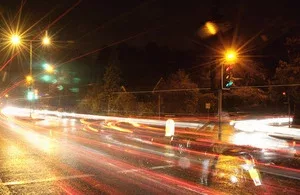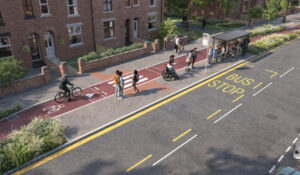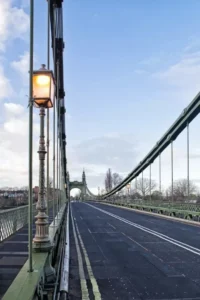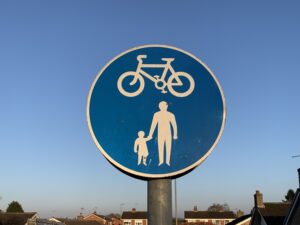The North West will benefit from more frequent trains, more capacity and faster journeys in a major funding boost to create stronger public transport networks.
Yesterday the government has announced the Network North plan, which will build better connectivity across the North and Midlands with faster journey times, increased capacity and more frequent, reliable services.
Its plan will see HS2 delivered between Birmingham and Euston in central London as planned. But every penny that would have been spent building new track between the West Midlands and Manchester will instead be redirected into roads, rail and buses to drive economic growth and provide jobs, said the government.
Rather than just connecting Birmingham and Manchester, it said it will set aside £12 billion for links between Liverpool and Manchester to ensure the delivery of Northern Powerhouse Rail (NPR) and then invest £36 billion in hundreds of projects in towns, cities and rural areas across our whole country, and in roads, rail and buses – investment on a truly unprecedented scale that will drive economic growth and provide jobs, it added.
Over £3 billion will also help deliver faster and more frequent trains between all the North’s main cities including Hull, Leeds, Sheffield and Manchester. This will bring Hull into Northern Powerhouse Rail, upgrade and electrify the line between Sheffield and Leeds, and upgrade the route between Sheffield and Manchester. Also, the government said it will also create a network where all the 9 biggest cities of the North are connected to each other by fast, electric trains several times an hour.
Bradford will be given a new through station and new line linking to the NPR route near Huddersfield, with a Bradford-Manchester journey time of around 30 minutes once the new high-speed line west of Marsden is open. There will also be much faster journeys from Bradford to Huddersfield.
Further benefits for the North West will include:
- nearly £4 billion through City Region Sustainable Transport Settlements (CRSTS) to ensure all 6 Northern city regions will receive more than double their CRSTS1 funding to improve connectivity in their areas, which could pay for schemes such as the extension of the Manchester Metrolink to Heywood, Bolton, Wigan and Manchester Airport and bus rapid transit corridors in Manchester
- a brand new £2.5 billion fund to transform local transport in 14 rural counties, smaller cities and towns. This new money could pay for new stations, further electrification, bus corridors and new integrated public transport networks. The Energy Coast Line between Carlisle, Workington and Barrow will be upgraded, improving capacity and journey times, enabling trains every 30 minutes between Carlisle, Workington and Whitehaven. The upgrade will also accommodate major new freight demands from the new coal mine and provide regular services for the Westlakes Science Park, Nuclear Academy and Sellafield. This could support the creation of over 18,000 jobs
- £100 million will be shared across the North and Midlands to support the development and rollout of London-style contactless and smart ticketing, supporting seamless travel by enabling contactless or smartcard payment
- £3.3 billion long-term road resurfacing fund for North alone will combat the potholes causing misery for drivers and more than £500 million in funding will be provided for 2 major road schemes around Manchester. These include a new link road between the M62 and the M60, Manchester’s ring road and the busiest freight route outside the M25. The scheme will help tackle congestion and reduce delays
- a total of £300 million will ensure the delivery of 9 smaller road schemes, including the A582 South Ribble Distributor, Kendal Northern Access Route and the Wigan East-West Route
- the popular £2 bus fare will also be extended until the end of December 2024 instead of rising to £2.50 as planned. This will mean passengers on a bus journey from Lancaster to Kendal will save £12.50 every time they travel
- a £700 million bus funding package in the North will also see more buses and more frequent routes. They will include a new service to Royal Blackburn Hospital, doubling the service between Northwich and Chester and more buses to industrial estates and business parks
- Greater Manchester will also receive around £1.5 billion from the CRSTS2 budget and around £900 million additional funding – funded from HS2 – which is an unprecedented investment in local transport networks. That is more than double their allocation under the previous programme
- Liverpool City Region will also receive c.£1 billion from the CRSTS2 budget, plus a further £600 million on top – funded from HS2. That is more than double their allocation under the last round
























